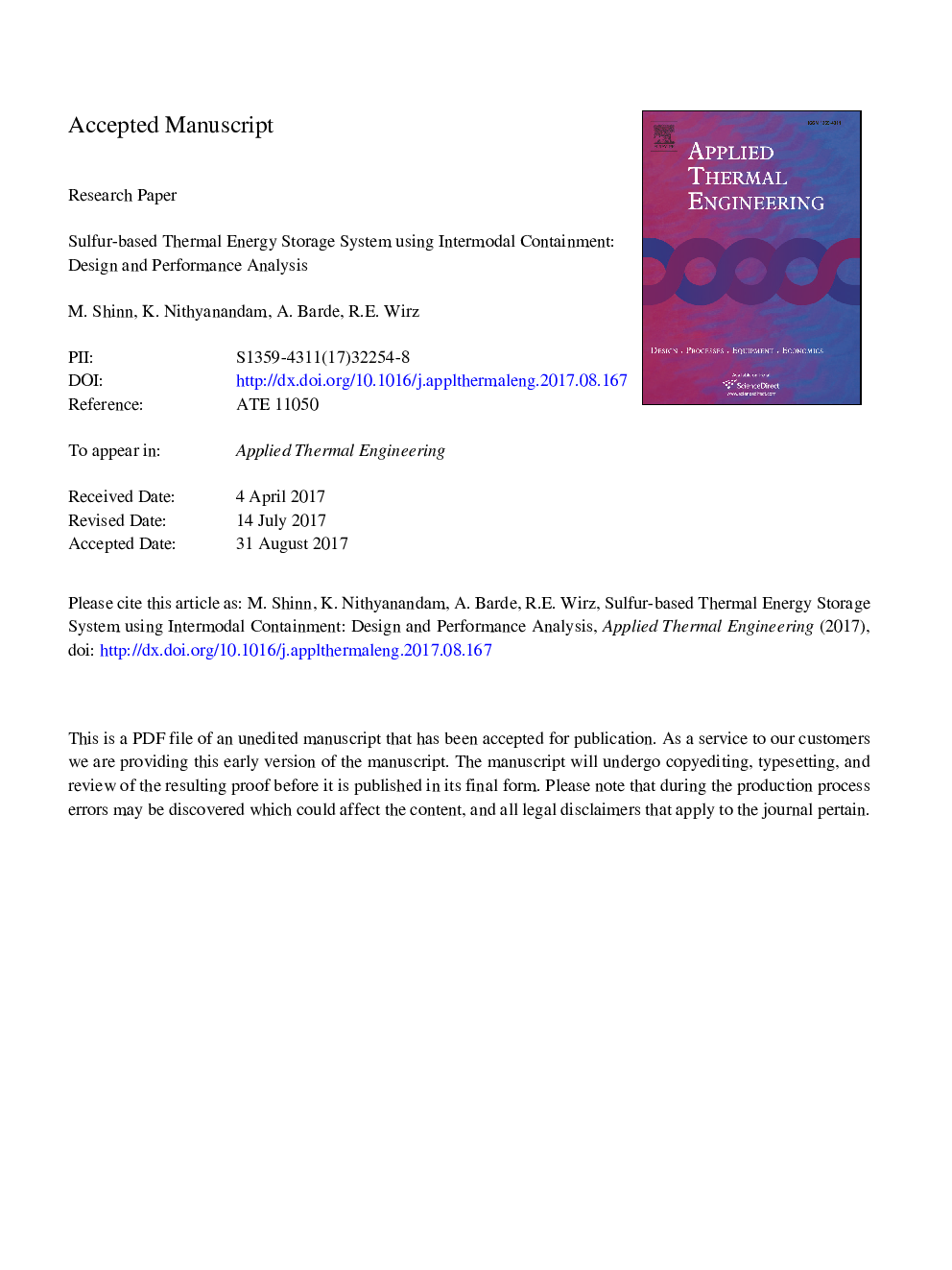| Article ID | Journal | Published Year | Pages | File Type |
|---|---|---|---|---|
| 4990862 | Applied Thermal Engineering | 2018 | 46 Pages |
Abstract
Thermal energy storage (TES) is an important energy storage technology that can be coupled to intermittent energy sources to improve system dispatchability. Elemental sulfur is a promising candidate storage fluid for high temperature TES systems due to its high energy density, moderate vapor pressure, high thermal stability, and low cost. This study uses a transient, two-dimensional numerical model to investigate the design and performance of a thermal energy storage (TES) system that uses sulfur stored isochorically in an intermodal shell and tube thermal battery configuration. Parametric analyses of key design and operating parameters show that there is a preferred tube diameter based on the competing influence of system-level energy storage utilization, exergetic efficiency, and cost. The results show that designs with smaller tube dimensions in the range of 2â³ NPS to 4â³ NPS provide exergetic efficiencies close to 95% while tube dimensions in the range of 4â³ NPS to 8â³ NPS meet the Department of Energy cost target of $15/kWh with costs being as low as $8.41/kWh. Finally, a table of preferred designs that meet the DOE cost goals is presented to help guide future design and experimentation efforts.
Related Topics
Physical Sciences and Engineering
Chemical Engineering
Fluid Flow and Transfer Processes
Authors
M. Shinn, K. Nithyanandam, A. Barde, R.E. Wirz,
